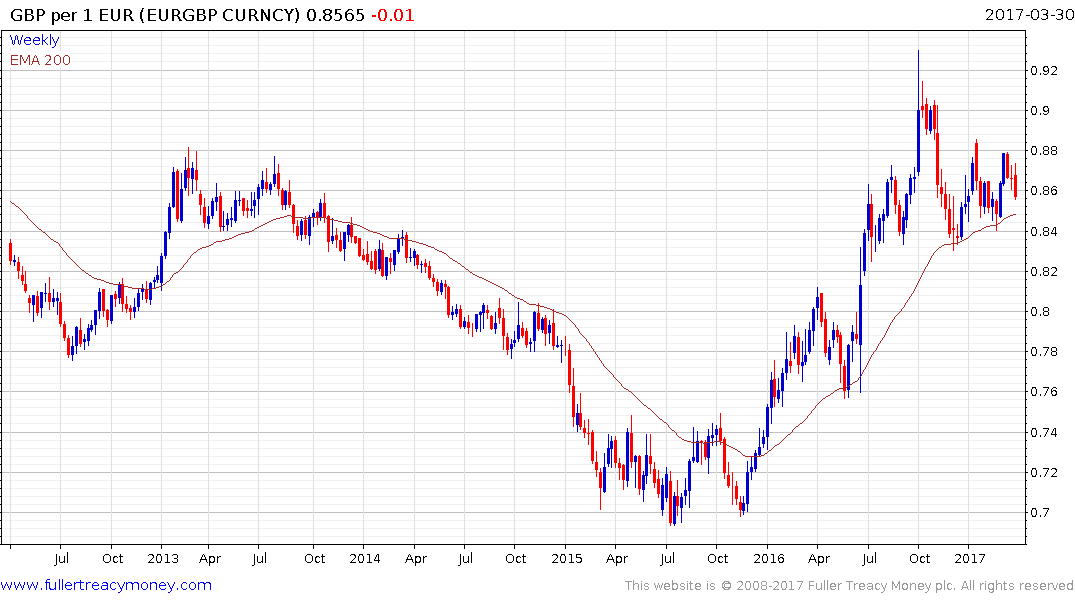Euro-Pound Hedging Costs Rise on Brexit Trigger, French Election
This article by Vassilis Karamanis for Bloomberg may be of interest to subscribers. Here is a section:
The premium on one-month options over the rate of actual market swings remains near a 10-week high set on Tuesday. It may increase further should Brexit-related negativity be less than feared in the near term, which would reduce realized volatility, and also as the implied rate should rise on capturing the second round of the French elections due May 7.
?Realized volatility could find support as the euro-pound pair’s prospects look increasingly bearish on charts, with current market positioning significantly skewed toward sterling declines. Leveraged net short positions in the pound this month are at the highest level since November.
Not all investors have given up on the pound, with the British economy performing better than expected. BlackRock Inc., which reduced some of its exposure to sterling ahead of the triggering of Article 50, has said it is still marginally long as an expected slowdown of the U.K. hasn’t materialized.
With the latest reports suggesting that the European Central Bank isn’t anywhere close to reducing economic stimulus, a short-squeeze on the pound could materialize.
Now that Article 50 of the Nice Treaty has been triggered there are at least three big questions outstanding with regard to the Pound and the Euro.
How willing is the Bank of England to run hot on inflation with the economy at full employment and economic growth continuing to surprise on the upside? 1-year notes yields pulled back today suggesting investors are less inclined to think an interest rate hike is anywhere on the horizon.
Just how acrimonious are the negotiations between the UK and EU likely to be? There are already squabbles over what the talks should be about, what terms are up for discussion and what the financial responsibilities of both parties should be.
The third question is the uncertainty represented by the EU’s election schedule. France votes in April and Germany in October. In between Greece will run out of money in July if the IMF cannot be enticed to participate in the next round of funding.

In the meantime the Euro is falling back towards the region of the trend mean against the Pound and will need to bounce from the 85p area to avoid top formation completion characteristics.


